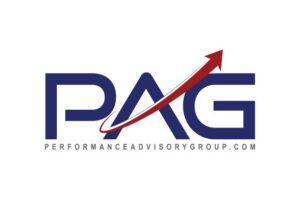Managing a property portfolio is more than just collecting rent—it’s about making strategic moves that drive profitability and long-term growth.Real estate asset management is the secret to optimizing your investments, reducing risks, and enhancing property values.
Whether you own a handful of residential units or commercial spaces, effective management ensures your properties work harder for you. In this blog, we’ll uncover practical tips and strategies to boost your returns, minimize vacancies, and grow your portfolio efficiently. Ready to take your investments to the next level? Let’s dive in!
What is Real Estate Asset Management?
Real estate asset management refers to the strategies used to maximize the financial performance of a property or a portfolio of properties. This process includes:
- Regular assessments of the property’s value
- Managing expenses and income
- Improving property condition and tenant satisfaction
- Optimizing long-term value through upgrades
Effective asset management ensures that properties generate steady cash flow and appreciate in value over time.
Key Benefits of Real Estate Asset Management
- Increased Profitability: Effective asset management leads to higher rental income and lower vacancy rates by ensuring properties are well-maintained and appealing to tenants.
- Risk Reduction: Diversification of investments, along with regular property upkeep, helps mitigate risks and avoid unexpected expenses that can harm your bottom line.
- Long-Term Value: Strategic improvements and thoughtful upgrades increase the overall value of your properties, ensuring their appreciation over time and improving the potential for future returns.
These benefits make real estate asset management a vital strategy for any investor aiming for sustainable growth and profitability.
The Role of Diversification in Portfolio Management
Diversification spreads risk across different property types and locations. This strategy helps:
- Reduce the impact of market changes: If one sector is underperforming, other parts of your portfolio may be thriving.
- Increase stability: A mix of residential, commercial, and vacation properties can provide a steady income stream.
For example, if you own a commercial property asset management portfolio, it may be less affected by downturns in residential real estate markets. Diversification offers both protection and opportunity for consistent cash flow.
How to Improve Property Value
To optimize your portfolio, improving the value of each property is essential. Some ways to increase value include:
- Renovations and Upgrades: Simple improvements like new paint, better landscaping, or energy-efficient features can boost appeal.
- Long-term improvements: Adding high-demand amenities, such as in-unit washers and dryers or smart home technology, can increase rent prices.
These improvements can help attract quality tenants and increase the long-term value of your property.
Effective Financial Planning and Market Research
A solid financial plan is essential for real estate asset management. Key areas to focus on include:
- Budgeting: Knowing how much you’ll spend on maintenance, taxes, and repairs is crucial.
- Market research: Understanding market trends helps you make informed decisions about when to buy, sell, or hold onto a property.
For example, if commercial property asset management is part of your strategy, keeping up with the commercial leasing market is important. This can guide your decision-making process, whether you’re choosing new tenants or considering property upgrades.
Managing Commercial Properties
Managing commercial properties presents its own set of challenges. Unlike residential properties, commercial spaces require understanding the specific needs of business tenants. Here’s what to consider:
- Longer lease terms: Commercial tenants typically sign longer leases, providing more stability and predictable cash flow.
- Tenant relationships: A good relationship with business tenants is crucial. Their needs may differ from those of residential tenants.
- Property suitability: Ensure that the property meets the needs of businesses. For example, retail spaces need high foot traffic, while office spaces require a more private setting.
Successful commercial property asset management revolves around these factors to ensure that tenants remain satisfied, and the property remains profitable.
Risk Management in Property Investment
All investments carry some level of risk. Here’s how real estate asset management can help mitigate these risks:
- Insurance: Make sure you have the proper insurance coverage to protect against damages or losses.
- Diversification: Spread your investments across different property types and regions.
- Regular inspections and maintenance: Prevent costly repairs by catching issues early through routine property inspections.
Proper risk management strategies can protect your investment from unexpected challenges.
Using Technology for Better Asset Management
Today’s technology makes real estate asset management easier and more efficient. Consider using these tools:
- Property management software: These platforms allow you to track expenses, rent payments, and maintenance requests all in one place.
- Market analysis tools: Software can help you stay on top of local real estate trends, including changes in property values and rent prices.
With these tools, you can streamline operations, reduce administrative work, and focus more on strategy and growth.
Long-Term Strategies for Maximizing Returns
To truly optimize your real estate portfolio, it’s important to plan for the long term. Here are a few key strategies:
- Hold and wait for appreciation: Many investors hold onto properties for years, allowing them to increase in value.
- Upgrade regularly: Keep the property competitive with market trends to avoid vacancy and increase rent potential.
- Know when to sell: Sometimes, selling a property at the right time can bring in substantial returns.
How Asset Management Services by Performance Advisory Group Can Help?
Asset management services, such as those provided by Performance Advisory Group, give investors a competitive edge by crafting strategies that maximize property performance. These tailored services ensure consistent cash flow and boost asset value through efficient management and in-depth market insights.
From improving tenant retention to minimizing risk and uncovering profitable opportunities, professional management handles the details, so investors can focus on scaling their portfolios. This approach transforms real estate ventures into more profitable, sustainable assets that thrive in the long term.
Ending Note
Optimizing your real estate portfolio is essential to maximizing your investments. Performance Advisory Group specializes in guiding investors through the complexities of real estate asset management, with over 30 years of experience. Whether managing distressed properties, handling loan defaults, or refining investment strategies, we provide the expertise needed to enhance your portfolio’s profitability.
Let us help you navigate challenges and seize opportunities—unlock your portfolio’s full potential with our professional insights and tailored approach to real estate success. Reach out and start maximizing your investments today!



